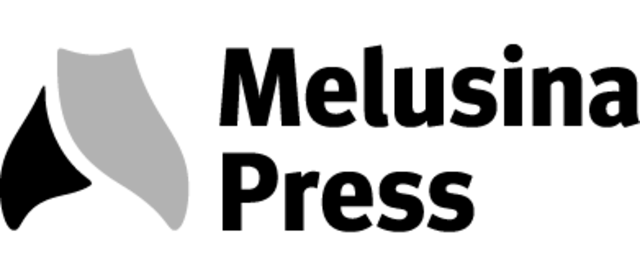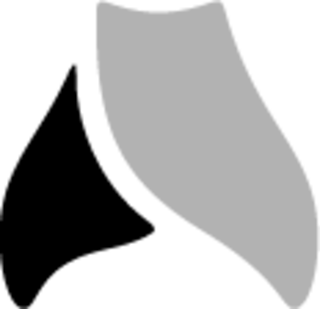- Presentation of the Series
- Management Board
- Editorial Office
- Contacts
- Frequency of Publication
- Editorial Board
- Scientific Committee
- Review Committee
- Open Access Policy
- Fees
- Licensing Terms
- Review Process
- Submission Process
- Stylesheet and Conventions
- Code of Ethics
- Archiving
- Data Management and Protection Policies
Presentation of the Series
Les Cahiers mosellans is a scholarly publication dedicated to the study of the diverse cultural, linguistic, ethnological, artistic, historical and geographical themes of the Moselle region. The series is specifically rooted in the Moselle region of Luxembourg, France and Germany.
Academics, museum professionals and professional associations as well as local or independent researchers with an interest in this target region are invited to contribute (in Luxembourgish, French, German or English). In this way, the series constitutes a real organ of exchange and dissemination, bringing energy and cohesion to the region.
The aim of the series is to support the production and dissemination of scientific knowledge by authors who respect rigorous scientific standards. In addition, by popularising academic knowledge, les Cahiers mosellans also seeks to strengthen the link between the world of research and the people of the region
Management Board
- Adeline KARCHER (Musée „ A Possen”) - adeline.karcher@musee-possen.lu - ORCiD: 0009-0002-9121-8496
- Alberto MANZINI (Wäinhaus) - alberto.manzini@museevin.lu - ORCiD: 0000-0002-4822-7461
Editorial office
- Adeline KARCHER (Musée „ A Possen”) - adeline.karcher@musee-possen.lu
- Alberto MANZINI (Wäinhaus) - alberto.manzini@museevin.lu
Contacts
Musée „ A Possen” - Dr. Adeline KARCHER
2 Keeseschgässel
L-5405 Bech-Kleinmacher
Luxembourg
www.musee-possen.lu
Wäinhaus - Dr. Alberto MANZINI
115, route du Vin
L-5416 Ehnen
Luxembourg
www.museevin.lu
Frequency of Publication
At least one volume is published once a year.
Editorial Board
- Dr. Adeline KARCHER (Musée „ A Possen”) - adeline.karcher@musee-possen.lu
- Dr. Alberto MANZINI (Wäinhaus) - alberto.manzini@museevin.lu
Scientific Comittee
Upcoming
Review Committee
- Elisabeth BOESEN (Institut d'Histoire / UR DHUM, Université du Luxembourg) - elisabeth.boesen@uni.lu
- Serge FISCHER (Directeur de l’Institut viti-vinicole, Remich) - serge.fischer@ivv.etat.lu
- Marie-Paule JUNGBLUT (Collaboratrice scientifique à l’Institut d’Histoire de l'Université du Luxembourg, Maître de conférences au Service de Muséologie de l’Université de Liège) - marie-paule.jungblut@uni.lu
- Stephan LAUX (Universität Trier) - lauxst@uni-trier.de
- Julien LÉONARD (Maître de conférences en histoire moderne, Université de Lorraine, Directeur adjoint du CRULH) - julien.leonard@univ-lorraine.fr
- Regis MOES (Musée national d’archéologie, d’histoire et d’art, Luxembourg. Directeur adjoint, Historien) - regis.moes@mnaha.etat.lu
- Rachel RECKINGER (Université du Luxembourg) - rachel.reckinger@uni.lu
- Jean-Marie YANTE (Professeur émérite de l’Université catholique de Louvain, ancien professeur associé de l’Université du Luxembourg) - jean-marie.yante@uclouvain.be
Open Access Policy
Les Cahiers mosellans disseminates its contents in open access to ensure the widest possible spread of knowledge and the exchange of knowledge at a global level.
Authors retain their rights over their work. They grant the series Les Cahiers mosellans the right to publish on a non-exclusive basis. Anyone reading the series will be able to download, reuse, print and distribute the contributions published in Les Cahiers mosellans, provided that the author and the title of the series are correctly cited, and that the use does not conflict with the licensing terms.
Fees
Les Cahiers mosellans adopts a policy of complete gratuity for contributors during the entire editorial process (submission, evaluation and online publication of contributions).
There will be no processing charges, submission or publication fees.
Licensing Terms
Contributions to the series are licensed under CC BY-SA 4.0. Information about this license can be found at https://creativecommons.org/licenses/by-sa/4.0/. Images and other resources used inside a contribution are subject to the same license unless licensed otherwise or coming from another source.
Review Process
All contributions published in Cahiers mosellans are submitted to anonymous blind peer-review. After a preliminary evaluation by the editorial board, each contribution proposal is submitted to one or more reviewers (according to their areas of expertise), selected in the Grande Région (Luxembourg, Germany, France). The names of the reviewers are published on the webpage (which is constantly updated).
Submission Process
Proposals and manuscripts within the scope of the series may be submitted to Cahiers Mosellan any time of the year.
- Size of the proposal : 3000 signes max
- Proposals and manuscripts that are within the scope of the series can be submitted at any time to: adeline.karcher@musee-possen.lu or alberto.manzini@museevin.lu
Stylesheet and Conventions
Submissions have to be sent in a Word template. The template is sent to authors after the call-for-astracts. the use of the template is outlined in its guidelines [PDF]
For questions regarding citation and other matters, please refer to the Cahiers Mosellans styleguide
Code of Ethics
Les Cahiers mosellans is an annual peer-reviewed scientific series that adheres to the Code of Publication Ethics developed by the Committee on Publications Ethics (COPE) : https://publicationethics.org
Authors and contributors to the series are expected to familiarise themselves with the COPE principles, and to respect them throughout the entire publication process.
Archiving
Publications and publication assets are archived in different formats and in different places, most suitable to those formats. An XML version, which assures software-independent, human-readable long-term-preservations, is archived and versioned in a data repository of the University of Luxembourg. A PDF version is archived in the document repository of the University of Luxembourg and at the National Library of Luxembourg.
Data Management and Protection Policies
The management of the series complies with data protection standards, notably with the European Union’s General Data Protection Regulation (GDPR) concerning “data owners’ rights”.
Names, email addresses and other personal information provided to the series will only be used for the stated purposes and will not be made available for any other use. Only information that is essential for the evaluation and publication of contributions, for informing readers of the authorship of contributions, and more generally for scientific communication purposes, will be collected.
Authors are responsible for the data they provide on the persons mentioned in their contributions.

